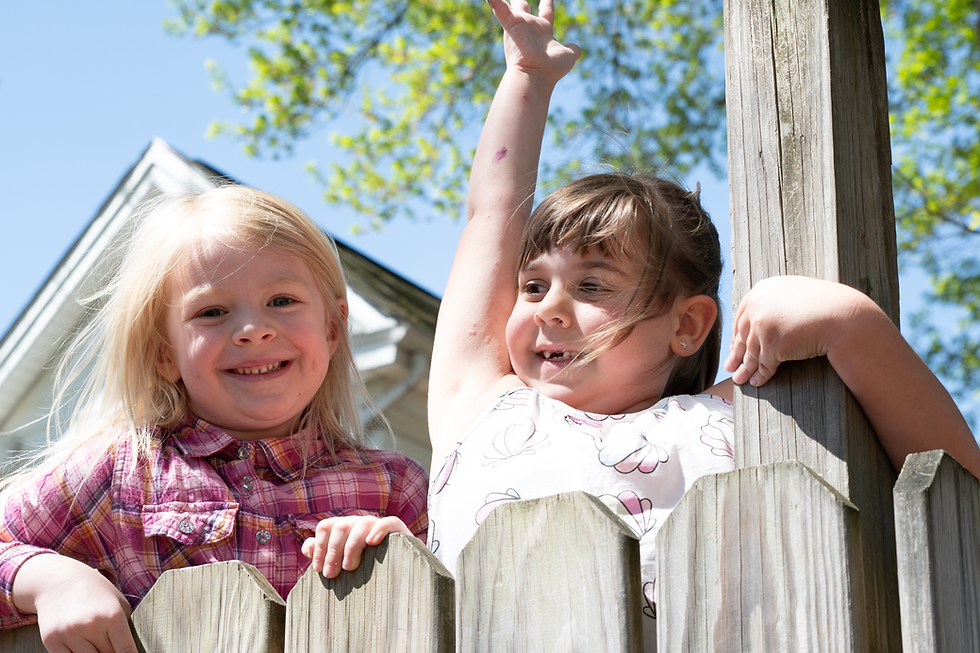Raising Kids Who Can Think for Themselves in a Noisy World
- UFS Editorial
- Jun 30, 2025
- 3 min read
Updated: Oct 30, 2025
Children today grow up surrounded by noise: notifications, headlines, instant replies, and a steady stream of opinions on what to believe, say, wear, and value.
This noise doesn’t just scatter their attention, it shapes identity, tests integrity, and erodes the space needed for self-reflection.
How do we help children slow down enough to hear their inner voice and reflect before reacting?
To discern truth, stay grounded in their values, and think with clarity and compassion?
It begins with how we model thoughtful presence in the places where children learn and grow.

Thinking Takes Time, More Than We’re Used To
Real thinking is rarely fast. It takes pause. It takes patience. It takes courage.
But the pace of modern life, and often, modern education leaves little room for that process. Rushing to the right answer, checking the box, or keeping up can replace the deeper work of reflection and discovery.
At United Friends School, a Quaker school in Pennsylvania, we’ve found that stillness isn’t just a break, it’s a space for growth.
Each week, students gather for Meeting for Worship: a quiet, shared practice that invites children to sit in silence and listen inwardly. Sometimes someone speaks. Sometimes no one does. Every voice is welcome, and every pause has value.
This practice sends a powerful message:
-Your thoughts matter.
-You don’t have to react right away.
-You can listen. You can wait. You can trust yourself.
Questions Are as Important as Answers
One of the most effective ways to support independent thinking is to center learning around inquiry.
Instead of memorizing facts or rushing through content, students at UFS are invited to ask questions:
Why does this matter?
How does it connect to what we already know?
What we might be missing?

Whether they’re exploring volcanoes, literature, or social justice, students are guided to think deeply and critically, to challenge assumptions, explore multiple perspectives, and connect learning to their lived experiences.
This kind of learning doesn’t just build strong students. It cultivates discernment, an essential skill in a world full of quick takes, shallow narratives, and constant noise.
Values Anchor Thinking
Independent thought without a moral anchor can lead to clever arguments with little substance. That’s why it’s so important for children to explore what matters to them, not just what they know.
At UFS, students regularly reflect on the Quaker testimonies: Simplicity, Peace & Social Justice, Integrity, Community, Equality, and Care for the Earth. These values aren’t tacked onto the curriculum. They are part of the daily rhythm. From resolving playground conflicts to organizing service projects, children are given opportunities to act on what they believe.
The goal isn’t to teach students what to think. It’s to give them a framework for how to think ethically, compassionately, and with integrity.
For families and educators outside a Quaker setting, the principle still holds. Help children name and reflect on their values. Ask them what feels fair, what feels right, what they want to stand for. Then model the same kind of reflection in your own decisions.

How to Support Thinking at Home and School
Helping kids think for themselves isn’t about letting them drift aimlessly. It’s about helping them root their thinking in curiosity, values, and trust in their inner compass.
Whether you’re part of a Quaker community or simply drawn to reflective education, here are a few small practices that can make a big difference:
Make space for quiet. Even five minutes of shared silence can help children reset and reflect on their thoughts.
Ask open-ended questions. Shift from “What did you learn today?” to “What surprised you today?” or “What are you still wondering about?”
Name your values. Whether it’s kindness, fairness, or honesty, talk about how these guide your decisions.
Model thinking aloud. Let kids hear you wrestle with questions instead of always presenting polished answers.
Celebrate perspective. Help children notice how different people might approach the same issue with care and integrity.
At United Friends School, we’re not just preparing students for the next grade; we’re preparing them for life. That means helping them grow into people who can meet a complicated world with clarity, confidence, and compassion.
Our students don’t just learn about peace, integrity, and community. They live it.
From conflict resolution on the playground to service projects in the community, UFS students practice what it means to lead with compassion and to act on their values, even when it’s hard.
Want to see how we support children in becoming thoughtful, grounded learners?
We invite you to visit our campus and experience the UFS difference for yourself.
%20-%201%20-%20Edited%20(1).png)



Comments